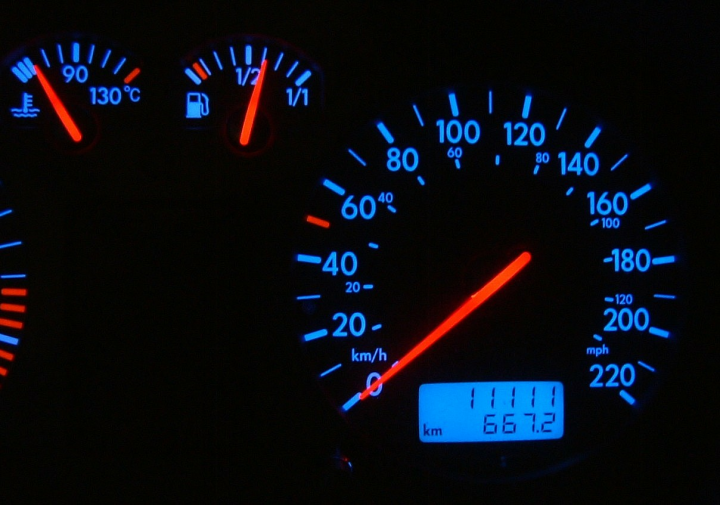
11,111km on the Odometer

I was driving down to the corner to pick up something for dinner and thought this was worth a picture. That's a nice-looking number, but it's not prime. Which makes me wonder. Newsflash! New results! Frontiers of Mathematics pushed back! Read on.
Clearly a number all of whose digits are the same can't be prime unless the digit is '1' (because XXXXXX is divisible by 111111 for all X). So I'm wondering if there is any number except for 11 whose digits are all '1' that is prime? My intuition says there probably is. If the number of digits is divisible by 3, so is the number. If the number of digits is 4, 6, 8... it's divisible by 101, 10101, 10101... and so on. So the candidate numbers are the ones with 5, 7, 11, 13, 17, 19... and so on digits; the 5- and 7-digit candidates are "almost prime", so I betcha there's one out there. Not in 32-bit space though... I'll have to track a "bignum" package down and find it.
Update, March 10: There was some discussion on this over at Sam Ruby's space; the most interesting result was that for a number made up of 1's to be prime, it had to have a prime number of digits... nifty.
I was wondering how portable this was outside of base-10, and naturally started thinking about binary, and remembered that serious math geeks have truckloads of theorems about "Mersenne Primes", which are of the form
2N - 1And of course in binary those are all ones.
Then I got the following from James E. Taylor, whose address would seem to place him at the U of Manchester in Britain.
1111111111111111111 is prime! [19 digits, he doesn't say -T]
These numbers are called repunits (i.e. the digits are "repeated" "units"). I suspect that there are infinitely many prime repunits, although this has not been proved. In fact, only 7 are known! The next one has 23 digits, the next 317, then 1031, then 49081, and finally 86453. All in base 10.
And I think to myself... what a wonderful world.